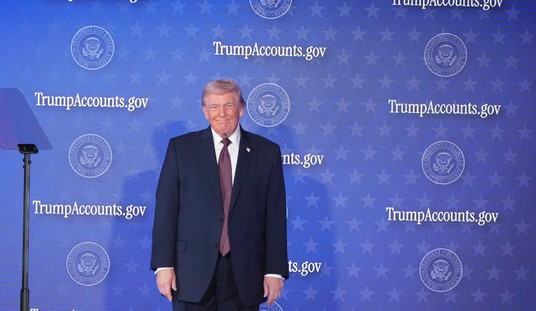Would Justice Sonia Sotomayor let Christian schools play public schools in basketball? Or would she declare that such a game -- or at least some iterations of such a game -- would violate the First Amendment prohibition against the government establishing a religion?
The answer ought to be obvious.
But it is not -- if you adopt the reasoning Sotomayor exhibited in her dissenting opinion in the case of Trinity Lutheran Church vs. Comer, which the Supreme Court decided this week.
The case involved the Learning Center, a preschool and day care center operated by a Lutheran church in Columbia, Missouri. The center competed in a grant program, sponsored by the Missouri Department of Natural Resources, that reimbursed non-profit organizations for repaving their playgrounds with material made from recycled tires.
As summarized by the court, 44 nonprofits applied for grants under the program. The state awarded grants to 14. Under the criteria used to judge the applicants, the Learning Center ranked fifth.
But the Department of Natural Resources refused to give the Lutheran facility a grant. It argued it was doing so in keeping with a Missouri constitutional provision that prohibits the distribution of government funds "directly or indirectly, in aid of any church, sect or denomination of religion."
When the court heard this case in April, two liberal justices -- Stephen Breyer and Elena Kagan -- asked questions indicating they saw discrimination against the church.
Breyer likened disqualifying a church-run day care center from the pavement program -- which was designed to protect the health and safety of children -- as akin to denying it fire and police protection.
Recommended
"Does the Constitution of the United States permit a state or a city to say, we give everybody in this city police protection, but not churches," he asked Missouri's attorney. "We give everybody fire protection, but let the church burn down."
Kagan was even more direct. "It's a burden on a constitutional right, in other words," she said, "because people of a certain religious status are being prevented from competing in the same way everybody else is for a neutral benefit."
The court decided the case 7-2 in the church's favor. Chief Justice John Roberts wrote the majority opinion, which Kagan joined in full, and Breyer joined with a concurring opinion in which he repeated his point about police and fire protection.
Sotomayor, joined by Justice Ruth Bader Ginsburg, dissented.
She noted that the Lutherans who run the preschool and day care in question admit to exercising their religion even on the playground -- the very playground that might have been paved with recycled tires subsidized by a competitively-won government grant.
"The church seeks state funds to improve the Learning Center's facilities, which, by the church's own avowed description, are used to assist the spiritual growth of the children of its members and to spread the church's faith to the children of nonmembers," wrote Sotomayor.
"The church's playground surface -- like a Sunday School room's walls or the sanctuary's pews -- are integrated with and integral to its religious mission," she said. "The conclusion that the funding the church seeks would impermissibly advance religion is inescapable."
Her logic: If a church school uses its playground to advance its religious mission, it is disqualified from competing in a government grant program that helps fund safer playing surfaces.
So, what about competing in a basketball game against a public school?
Suppose a Christian school sees the purpose of its athletic programs -- like this Lutheran center sees its playground -- as a means to develop the faith of its students and to plant the seeds of that faith in the hearts and minds of athletes who play for opposing schools.
Could a public school send a team coached by government employees in a bus owned by the government to that Christian school to engage in a game that the Christian school expressly understands to be -- like all its activities -- an expression of its Christian faith?
Could a public school, by its promotion of and participation in that game, willfully draw paying fans to see it -- and, thus, using its government resources, help a Christian school increase its own?
Or does the wall of separation Sonia Sotomayor sees running between church and state extend to scholastic basketball games?
In the opinion of the court, Chief Justice Roberts said: "The express discrimination against religious exercise here is not the denial of a grant, but rather the refusal to allow a church -- solely because it is a church -- to compete with secular organizations for a grant."
"The department's policy," Roberts wrote, "expressly discriminates against otherwise eligible recipients by disqualifying them from a public benefit simply because of their religious character."
"The department's policy," he concluded, "violates the Free Exercise Clause."
But in Sonia Sotomayor's America, it is Chief Justice Roberts -- and Justices Kagan and Breyer -- who have violated the First Amendment by allowing a church to bring its faith out of the sanctuary and into the schoolyard, where it can compete on equal footing with other institutions.

























Join the conversation as a VIP Member